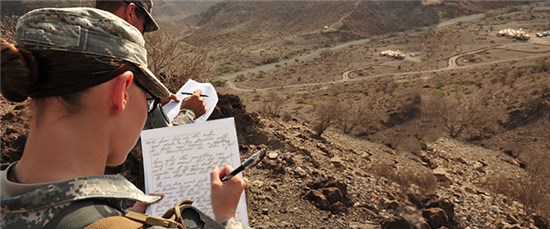
4/28
I had my first detainee patient today.
The "fighting season" has officially begun and the intensive care unit has been slammed with roadside bomb and gunshot wound patients from both sides of the fight. The injuries are crazy; anything from extremity amputations to enucleated pupils to one guy's chest literally being opened up and attached to a wound vac.
My patient suffered from a gunshot wound to the neck with an exit wound resulting in the loss of his left eye, and severe soft tissue damage from is left thigh down to his calf. He is young, probably in his twenties, although sometimes it is near impossible to tell. When the interpreter asked him his age, he didn't know it. The interpreter said that it was pretty common for people in this part of the world to not know their age.
When a detainee comes through the hospital, a guard is assigned to watch over the nurse. We use mobile curtain partitions. I kept my partitions completely surrounding my patient's bed and monitors, so that he could not see the exit or other patients who are on the ward. I left a small opening in the partitions to walk in and out of my makeshift room, and positioned it so that the guard could have eyes on me at all times. At one point, some Afghan soldiers came in to visit their fallen comrades, and I completely shut off the partitions so that my patient could not see anyone.
I had heard horror stories of other detainee patients shouting, spitting at their nurses, and being downright hateful to everyone trying to help them. I also knew the rumors that everyone is addicted to heroin (this is the poppy capital of the world, after all, and heroin is probably the number one export for Afghanistan) so many patients who come to the hospital start going through withdrawals. I heard of one guy yanking his urinary catheter out and then banging out all of his teeth on the metal bed frame.
My detainee patient, however, was neither rude nor going through opiate withdrawals. He mostly slept, waking up occasionally to ask for "ooba" (water) or saying "dard" (pain). After giving him something for his pain, his respirations and oxygen saturation began to dip down a little, a common side effect for this medication. I simply demonstrated taking deep breaths and then pointed at him, and he willingly complied.
This was not the experience that I had prepared myself for this morning when my shift leader told me that I would have him. My patient is no different than anyone else I have cared for. In fact, I'm having a pretty decent day and can't complain about anything. I spoke to my senior leader, a Lieutenant Colonel who’s been an ICU nurse for years, about it. This isn't his first rodeo. He basically broke it down for me like this; not every "bad guy" is on that side because they want to be. Some fall into the Taliban when they are children. Some become part of it because they have families to support. It's no secret that members of the Taliban have an easier life than others. These people are already uneducated far beyond my imagination. I mean, who doesn't know when their birthday is?
I'm not saying that the Taliban is ok by any means, but maybe I shouldn't be so quick to judge someone when I don't know their circumstances. What would I do if my situation was different? What would you do?
But I did not have a patient who was spitting at me. My views might be a little bit different tonight if I did.
I also got promoted to captain today. We did it right there in the ICU. Everyone broke away from their patients' beds so they could watch the promotion ceremony, which lasted about five minutes. The Lieutenant Colonel pinned my rank on.
Later this afternoon, one of the British nurses called me over to her bed space. Her young Afghan patient, who had just lost both of his legs, was trying to tell me something in Pashtu. He pointed to my chest where my new rank was and then clasped his hands, gave me a thumbs up and smiled. He had seen the promotion ceremony, and although he didn't speak English, he understood what was going on and wanted to congratulate me. I'm not a super emotional person, but that resonated deep in my heart.
This deployment has already been worth it for me. I don't know how I'll feel after six months, but I'm thankful for the experiences I've had thus far. It's helped to break down some of my barriers and perceptions. It's been incredibly humbling, and this is still just the beginning.
Part 5 of a 13 part miniseries following the personal memoirs of a deployed soldier